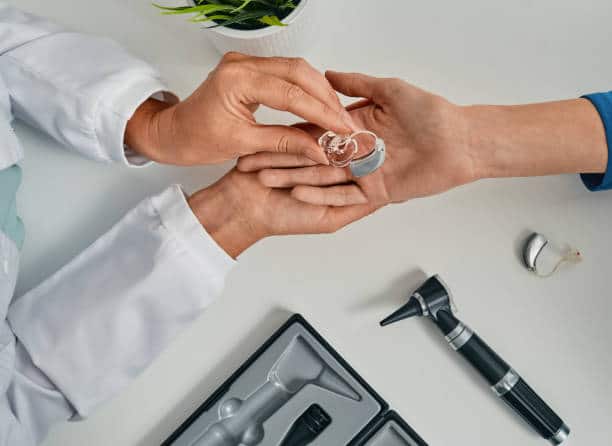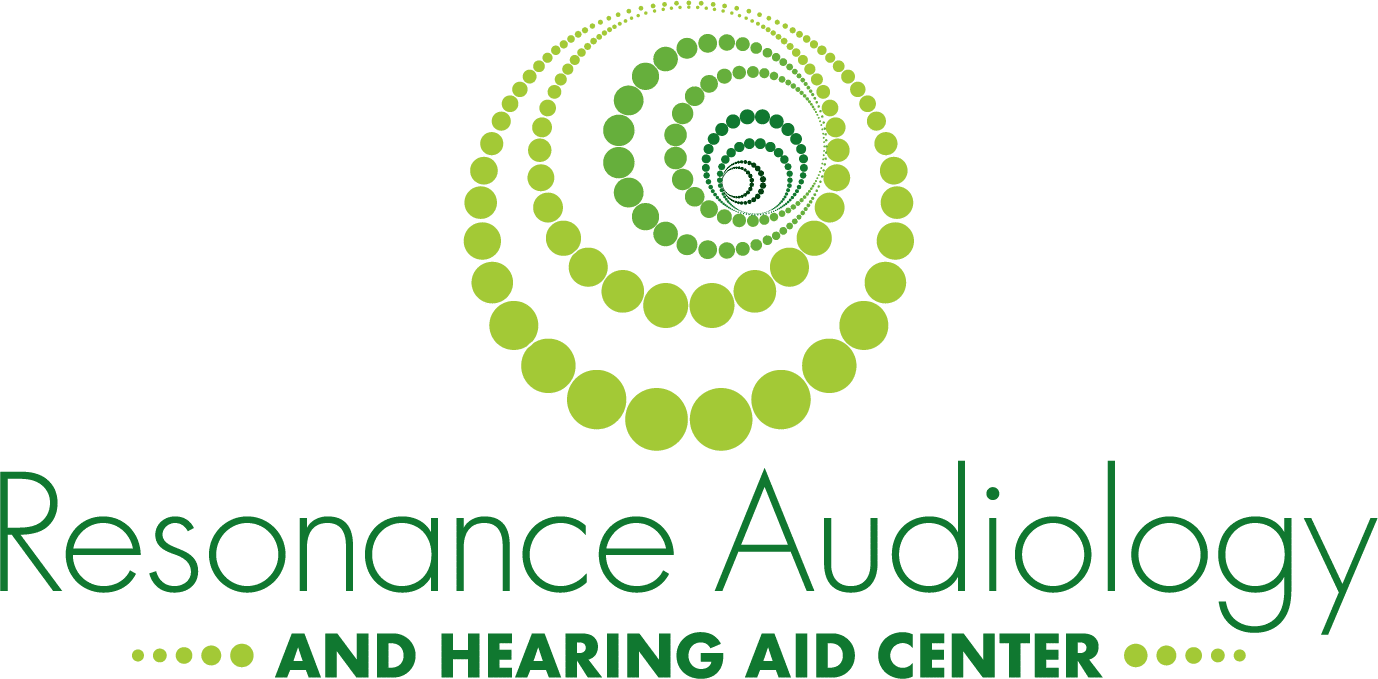Enhance Your Hearing Experience: How to Choose the Right Hearing Aid for Your Specific Needs
Are you tired of missing out on conversations, struggling to hear your favorite songs, or feeling isolated due to your hearing loss? If so, you’re not alone. Millions of people around the world face similar challenges every day. But fear not, because there is a solution that can greatly enhance your hearing experience – hearing aids.

If you’re looking to gain the knowledge and confidence to make an informed decision that will greatly improve your quality of life, then you’ve come to the right place. So, let’s dive in and discover how you can enhance your hearing experience with the right hearing aid.
Understanding hearing loss and the need for hearing aids
Hearing loss is a common condition that affects millions of people worldwide. It can be caused by various factors, including age, exposure to loud noises, genetic predisposition, and certain medical conditions. Regardless of the cause, hearing loss can have a significant impact on your daily life and make it difficult to communicate effectively and enjoy activities that particularly rely on sound.
That being said, this is where hearing aids come in. Hearing aids are small electronic devices designed to amplify sound for individuals with hearing loss. They work by capturing sound waves, converting them into electrical signals, and then amplifying those signals before delivering them to the ear. By doing so, hearing aids can help individuals regain their ability to hear and improve their overall quality of life.
When considering whether you need a hearing aid, it’s important to consult with a qualified hearing healthcare professional who can assess your specific hearing needs. They will conduct a thorough evaluation to determine the extent of your hearing loss and recommend the most appropriate course of action, which may include the use of hearing aids.
Types of hearing aids available in the market
There are several types of hearing aids available, each with its own unique features and benefits. The most common types include behind-the-ear (BTE), in-the-ear (ITE), and completely-in-the-canal (CIC).
Let’s learn more about these different types of hearing aids:
- BTE hearing aids- the largest and most visible type of hearing aids. They sit behind the ear and have a tube that connects to a custom-molded earpiece. BTE hearing aids offer a wide range of features and technologies and are best for individuals with mild to profound hearing loss.
- ITE hearing aids- custom-made to fit the shape of your ear. They are slightly smaller than BTE hearing aids and sit in the outer part of the ear. ITE hearing aids offer a more discreet and comfortable option and are suitable for individuals with mild to severe hearing loss.
- CIC hearing aids- the smallest and most discreet type and virtually invisible as they fit entirely inside the ear canal. CIC hearing aids are suitable for individuals with mild to moderate hearing loss and offer a natural sound quality.
When choosing a hearing aid, it’s important to consider your specific hearing needs, lifestyle, and personal preferences. A qualified hearing healthcare professional can help guide you in selecting the right type of hearing aid that will best meet your requirements.
Factors to consider when choosing a hearing aid
Given the wide range of options available, choosing the right hearing aid can be a daunting task. To make an informed decision, it’s important to consider several factors that will help determine the most suitable hearing aid for your specific needs.
These factors include, but are not limited to:
- Severity of your hearing loss: Different types and styles of hearing aids are designed to address varying degrees of hearing loss. Individuals with mild to moderate hearing loss may benefit from smaller and more discreet hearing aids, while those with severe to profound hearing loss most likely require more powerful devices.
- Your lifestyle and daily activities: If you lead an active lifestyle and participate in outdoor activities or sports, you might want to look into a hearing aid that is durable, water-resistant, and able to handle background noise effectively. On the other hand, if you spend most of your time in quiet environments, you may prioritize a hearing aid that provides excellent sound quality and clarity.
- Your budget: Hearing aids can vary significantly in price, depending on factors such as their features, technologies, styles and so on. It’s essential to set a realistic budget and work with your hearing healthcare professional to find a hearing aid that offers the best value for your money.
- Your comfort levels: It’s important to ensure that the hearing aid you choose is comfortable to wear and easy to use. Factors such as the size/fit as well as the availability of user-friendly controls and features, can greatly impact your overall satisfaction and daily experience with the device.

Assessing your hearing needs and lifestyle
Before choosing a hearing aid, it’s important to assess your specific hearing needs and lifestyle. This will help you determine the features and technologies that will be most beneficial for you to enhance your hearing.
Start by making a list of situations where you struggle to hear or understand speech. Do you find it difficult to follow conversations in noisy environments? Are you unable to hear the television or phone clearly? By identifying these specific challenges, you and your doctor will be able to prioritize the features that address your specific needs.
Next, consider your daily activities and lifestyle. Do you frequently attend social gatherings, concerts, or sporting events? Are you an avid music lover? Do you spend a lot of time on the phone or engaging in video conferences? These factors will influence the type of hearing aid and its features that will best suit your lifestyle to ensure you can continue partaking in the activities you love.
It’s also important to consider any additional health conditions or physical limitations that may impact your ability to handle or operate certain types of hearing aids and their functionalities. For example, if you have dexterity issues, you may prefer a hearing aid with larger buttons or remote control capabilities.
By taking the extra time to assess your hearing needs and lifestyle, you can ensure that the hearing aid you choose is perfectly suited to enhance your overall hearing experience.
Hearing aid features and technology
Hearing aids have come a long way in terms of features and technology. Today’s options offer a range of advanced features that are designed to improve sound quality, reduce background noise, and enhance user experience.
Some examples include:
- Directional microphones: Focus on sounds coming from in front of you while reducing background noise from other directions. This can greatly enhance your ability to understand speech in noisy environments, such as restaurants or crowded gatherings.
- Noise reduction technology: Helps filter out unwanted background noise, allowing you to focus on the sounds you want to hear. This is particularly beneficial in situations where there is a lot of background noise, such as on public transportation or at social events.
- Telecoil technology: Allows you to directly connect to compatible telephones or loop systems, bypassing background noise and improving sound quality. This is especially beneficial for those who frequently use telephones or participate in meetings or conferences.
- Bluetooth connectivity: A popular feature in modern hearing aids that allows you to wirelessly connect your hearing aids to various devices, such as smartphones, televisions, and audio streaming devices. With Bluetooth, you can stream phone calls, music, and other audio directly to your hearing aids, providing a seamless and convenient listening experience.
Keep in mind that in order to determine which features will be most beneficial for you, discuss your specific needs and preferences with your hearing healthcare professional.
Importance of professional assistance in choosing a hearing aid
Choosing the right hearing aid is not a decision to be taken lightly and seeking professional assistance from a qualified hearing healthcare professional is crucial.
Experts in this field have the knowledge and expertise to evaluate your hearing loss, assess your needs, and recommend the most suitable hearing aid for you. They will conduct a comprehensive hearing evaluation, in which they take into account your hearing thresholds, speech understanding, and listening preferences.
Furthermore, a hearing healthcare professional can guide you through the process of selecting the right hearing aid. They can explain the different features and technologies available, help you try out different hearing aids, and provide ongoing support and adjustments as needed throughout your hearing journey.
A hearing healthcare professional can also ensure that your hearing aid is properly fitted and programmed to optimize your hearing experience. They will take precise measurements of your ear canal and customize the settings of the hearing aid to your specific needs.
Please note that while there are online retailers and direct-to-consumer options available, seeking professional assistance is highly recommended. A qualified hearing healthcare professional can provide personalized care, ensure the right fit/functionality of your hearing aid, and offer ongoing support and adjustments to maximize your hearing potential.
Tips for maintaining and caring for your hearing aid
Once you have chosen your hearing aid, it’s important to properly maintain and care for it to ensure optimal performance.
Here are some essential tips for maintaining and caring for your hearing aid:
- Clean your hearing aid daily: Use a soft, dry cloth or a specialized cleaning tool to remove any wax or debris from the hearing aid. Avoid using water, alcohol, or cleaning solutions, as they can damage the device.
- Keep your hearing aid dry: Moisture can damage the internal components of your hearing aid, so remove your hearing aid before showering, swimming, or engaging in any activities that may expose it to excessive moisture. Consider using a hearing aid dehumidifier or drying kit to remove any moisture that may accumulate.
- Replace the batteries regularly: As most hearing aids use disposable batteries, checking the battery level regularly and replacing them as needed is crucial. Pro tip: keep spare batteries on hand, especially when traveling or during events that require extended hearing aid use.
- Handle your hearing aid with care: Avoid dropping or mishandling your hearing aid, as this can cause damage. Remove or insert your hearing aid over a soft surface, such as a towel or a bed, to cushion any accidental drops.
- Protect your hearing aid from extreme temperatures: Avoid exposing your hearing aid to excessive heat or cold, as it can affect its performance. Keep it away from direct sunlight, heaters, or air conditioning vents.
- Schedule regular check-ups: Regular visits to your hearing healthcare professional are essential to ensure that your hearing aid is functioning optimally. They can perform routine maintenance, make any necessary adjustments, and address any concerns or issues you may have.
By following these simple maintenance and care tips, you can prolong the lifespan of your hearing aid and ensure that it continues to provide you with the best possible hearing experience.
Are you in need of information or advice on which hearing aid is best for you, but not having much luck when researching “hearing aid doctor near me?” Contact Resonance Audiology today. Located in Lancaster, PA, we promise to provide the most individualized hearing care and best access to excellent technology.
Contact us today to get started!
